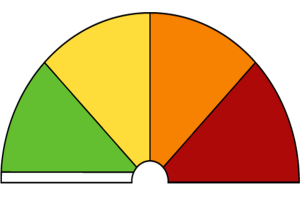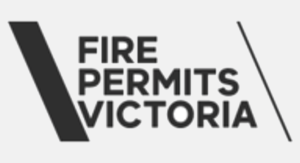The best way to fight fire is with prevention. Take the steps today to minimise the risk of a fire before the unexpected happens. See resources and info below.
Can I or Can’t I?
Find out what you can and can’t do during the declared Fire Danger Period, and on days of Total Fire Ban, when fires in open air are legally restricted.
Can I or Can’t I?
Find out what you can and can’t do during the declared Fire Danger Period, and on days of Total Fire Ban, when fires in open air are legally restricted.
How you can protect yourself from:
Bushfires
Prepare your property
- Before the fire season, clear away leaf litter, long grass and other flammable items from around your home
- Clean out your gutters of debris
- Have a water source or water supply readily accessible
Stay updated
- Tune into the latest weather reports and news
- Download the VicEmergency App and create a watch zone for your home
Have a plan
- Leave early on high risk days
- Plan your route and destination ahead of time
- Take essential items with you
- If you are unable to leave, gather food and water, stay indoors, seal windows and turn off air conditioning
Protect yourself
- If you are exposed to fire or smoke, cover your bare skin and protect your mouth and nose with a damp cloth
- Never wet down your clothes before you are exposed to heat, as the water may scorch you
If you become trapped by fire
- Take shelter in a vehicle or structure, close all windows and doors and stay low
- Move into a paddock with short grass or a large body of water, away from vegetation
- As a last resort, move to the already burned ground
House Fires
Fire equipment
- Ensure you have smoke alarms covering each bedroom and living area on every level of your house
- Test smoke alarms monthly, change batteries yearly
- Install fire extinguishers and fire blankets in accessible locations, especially kitchens
Electrical hazards
- Avoid plugging too many appliances into a power outlet
- Never daisy chain powerboards or plug double adapters into them
- Switch off electrical appliances at the power outlet when not in use
Heaters
- Keep clothes and flammable items away from heaters
- Place portable heaters in open areas, not on furniture
Kitchen
- Never leave a running stove or oven unattended
- Don’t use water on a fat or oil fire, if safe use a fire blanket or appropriate fire extinguisher (check its label)
If a fire starts
- Leave quickly if you cannot safely control the fire
- Close doors to contain the fire if safe to do so
- Stay low to avoid inhaling toxic smoke
- Leave belonings behind, help family members and pets outside
- Call triple zero (000) as soon as you safely can
How you can protect yourself from:
Bushfires
Prepare your property
- Before the fire season, clear away leaf litter, long grass and other flammable items from around your home
- Clean out your gutters of debris
- Have a water source or water supply readily accessible
Stay updated
- Tune into the latest weather reports and news
- Download the VicEmergency App and create a watch zone for your home
Have a plan
- Leave early on high risk days
- Plan your route and destination ahead of time
- Take essential items with you
- If you are unable to leave, gather food and water, stay indoors, seal windows and turn off air conditioning
Protect yourself
- If you are exposed to fire or smoke, cover your bare skin and protect your mouth and nose with a damp cloth
- Never wet down your clothes before you are exposed to heat, as the water may scorch you
If you become trapped by fire
- Take shelter in a vehicle or structure, close all windows and doors and stay low
- Move into a paddock with short grass or a large body of water, away from vegetation
- As a last resort, move to the already burned ground
House Fires
Fire equipment
- Ensure you have smoke alarms covering each bedroom and living area on every level of your house
- Test smoke alarms monthly, change batteries yearly
- Install fire extinguishers and fire blankets in accessible locations, especially kitchens
Electrical hazards
- Avoid plugging too many appliances into a power outlet
- Never daisy chain powerboards or plug double adapters into them
- Switch off electrical appliances at the power outlet when not in use
Heaters
- Keep clothes and flammable items away from heaters
- Place portable heaters in open areas, not on furniture
Kitchen
- Never leave a running stove or oven unattended
- Don’t use water on a fat or oil fire, if safe use a fire blanket or appropriate fire extinguisher (check its label)
If a fire starts
- Leave quickly if you cannot safely control the fire
- Close doors to contain the fire if safe to do so
- Stay low to avoid inhaling toxic smoke
- Leave belonings behind, help family members and pets outside
- Call triple zero (000) as soon as you safely can
Community Education
Ferntree Gully Fire Brigade facilitates various events including Community Bushfire Meetings, Community Fire Guard sessions, annual brigade open days, and more.
We also offer free home fire safety programs, and our members will present at preschools, primary and secondary schools, special schools, new parents and other groups.
Our aim is to keep our community safe, and to educate our community so that they make the correct decisions when confronted with a fire or hazmat situation.
To find out about our latest community events, visit our Facebook Page
To book us for a fire safety program, please Contact Us
Community Education
Ferntree Gully Fire Brigade facilitates various events including Community Bushfire Meetings, Community Fire Guard sessions, annual brigade open days, and more.
We also offer free home fire safety programs, and our members will present at preschools, primary and secondary schools, special schools, new parents and other groups.
Our aim is to keep our community safe, and to educate our community so that they make the correct decisions when confronted with a fire or hazmat situation.
To find out about our latest community events, visit our Facebook Page
To book us for a fire safety program, please Contact Us




